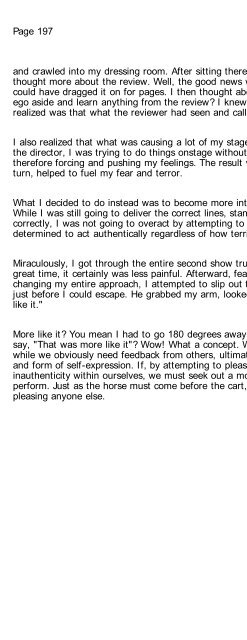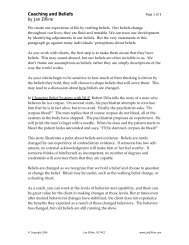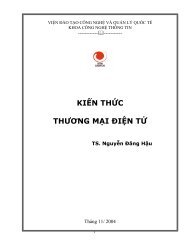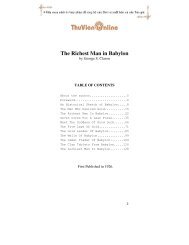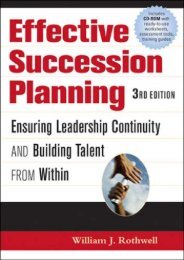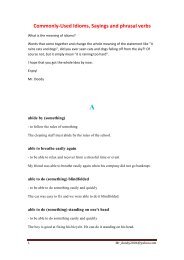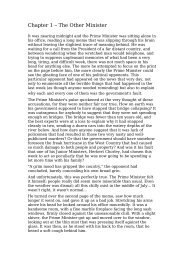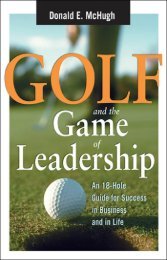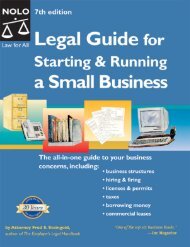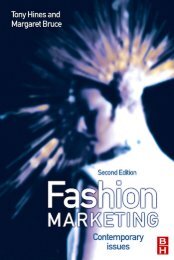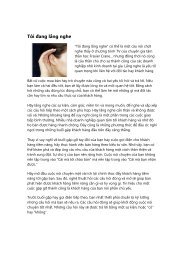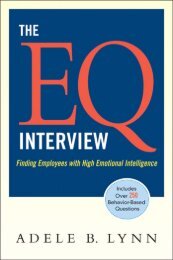1. The 15-Second Principle
1. The 15-Second Principle
1. The 15-Second Principle
You also want an ePaper? Increase the reach of your titles
YUMPU automatically turns print PDFs into web optimized ePapers that Google loves.
Page 197<br />
and crawled into my dressing room. After sitting there for a while I somehow pulled myself together and<br />
thought more about the review. Well, the good news was that the reviewer at least killed me quickly. He<br />
could have dragged it on for pages. I then thought about the reality of my performance. Could I put my<br />
ego aside and learn anything from the review? I knew I wasn't "woodenly," but what was I? What I<br />
realized was that what the reviewer had seen and called wood was a full-blown case of fear and terror.<br />
I also realized that what was causing a lot of my stage fright was my inauthenticity. In a desire to please<br />
the director, I was trying to do things onstage without the necessary emotions to back them up. I was<br />
therefore forcing and pushing my feelings. <strong>The</strong> result was poor, uncomfortable, and strained acting. This, in<br />
turn, helped to fuel my fear and terror.<br />
What I decided to do instead was to become more integrated and real with my actions and emotions.<br />
While I was still going to deliver the correct lines, stand where I was supposed to stand, and sing the songs<br />
correctly, I was not going to overact by attempting to push and fake emotions that weren't there. I was<br />
determined to act authentically regardless of how terrible and boring my acting might appear.<br />
Miraculously, I got through the entire second show true to my new commitment. Although I didn't have a<br />
great time, it certainly was less painful. Afterward, fearing that the director was going to strangle me for<br />
changing my entire approach, I attempted to slip out the back of the theater. Unfortunately, he caught me<br />
just before I could escape. He grabbed my arm, looked me straight in the eyes, and said, "That was more<br />
like it."<br />
More like it? You mean I had to go 180 degrees away from what I thought he wanted, in order to have him<br />
say, "That was more like it"? Wow! What a concept. What I learned from my Barroca experience was that<br />
while we obviously need feedback from others, ultimately, we must get comfortable with our own technique<br />
and form of self-expression. If, by attempting to please others, we are causing pain, struggle, and<br />
inauthenticity within ourselves, we must seek out a more truthful, authentic, and nurturing way to live and<br />
perform. Just as the horse must come before the cart, in life, comfort and integrity must come before<br />
pleasing anyone else.


